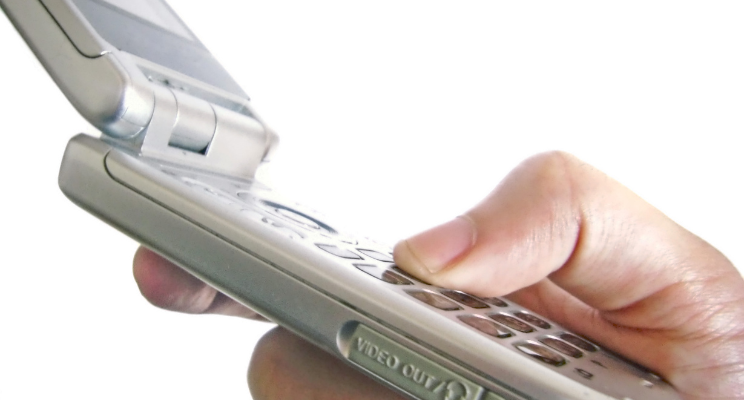Physical Address
304 North Cardinal St.
Dorchester Center, MA 02124
Physical Address
304 North Cardinal St.
Dorchester Center, MA 02124

Foldable phones and smart devices are redefining the future of mobile technology. With flexible displays, AI-powered features, and sustainable design, these innovations are transforming how we interact with tech. Discover how foldable technology is moving from trend to mainstream.
Smartphones are developing faster than ever, and the newest models fit neatly in our pockets. What once seemed like science fiction is shaping the future of smart devices and foldable phones. These cutting-edge devices are more than just eye-catching displays; they are revolutionizing how we exchange, produce, and use information.
Foldable technology is becoming a major force in the global smartphone market as manufacturers push the limits of functionality and design. We’re entering a time when power and convenience are at your fingertips thanks to smarter AI, smaller fold-out screens, and tighter integration with other smart devices.
In this blog we will discuss the materials that make foldable phones possible, how they are becoming more and more popular, and how ecosystems, sustainability, and artificial intelligence are changing the smart device market.
Smartphones that fold have gone from being a niche product to being essential. Due to advancements in hinge technology and dual-screen displays, tech behemoths like Samsung, Huawei, and Motorola have brought foldables into the public eye in recent years. However, consumer demand is increasing, so it’s no longer just about gaudy design.
Shipments of foldable smartphones are predicted by the International Data Corporation (IDC) to increase from 14.2 million units in 2022 to 54.3 million units by 2027. This indicates that these phones are more than just a fad. Its compound annual growth rate (CAGR) is 30.8%.
Users who have foldable devices enjoy the dual benefits of a phone when folded and a small tablet when opened. Professionals, gamers, and content creators all find this adaptability appealing. As technology advances, foldables will no longer be considered a luxury but rather the new standard.
Innovation in materials is crucial to the success of foldable devices. At first, producers employed plastic screens, which were prone to bending and scratching. However, things are now different. Corning Incorporated, the company behind Gorilla Glass, is creating incredibly thin, foldable glass that blends durability and flexibility.
Corning’s engineers are developing glass that can bend up to 200,000 times without losing its strength or optical clarity. To ensure that the devices look futuristic and last longer, the glass is thicker at the edges for added protection and thinnest at the fold for smooth motion.
According to their thorough analysis in The Progress Report, glass chemistry is being specially modified for folding without compromising strength. Style and durability will go hand in hand with this kind of research.
Software intelligence is keeping up with the increasingly dynamic nature of hardware. Future smart devices will be distinguished by their artificial intelligence (AI) capabilities in addition to their design. AI is already being used by foldable phones for things like predictive text input, adaptive display modes, and scene recognition in photography. However, this is only the start.
The National Institute of Standards and Technology (NIST) highlights how AI can improve mobile security, effectiveness, and customization. Consider a phone that recognizes your usage habits and automatically adjusts to save battery life or offer productivity advice. Through a network of interconnected devices, AI also makes it possible for wearable health monitoring, smart camera angles, and real-time voice translations.
AI will soon enable smart devices to be predictive rather than reactive, able to recognize your needs before you even unlock the screen.
Foldable phones are starting to take center stage in wider digital ecosystems. These devices thrive on seamless integration, whether it’s with smart TVs, fitness bands, or wireless earbuds. And without Bluetooth technology advancements, none of that would be feasible.
The worldwide Bluetooth standard is governed by the Bluetooth Special Interest Group (SIG), which has recently improved its protocols to increase speed, range, and power efficiency. Devices can now switch between connections more quickly, lower latency, and transmit data more securely thanks to the updated specifications.
As a result of this advancement, your foldable phone can now serve as a presentation tool, health tracker hub, and remote control simultaneously—all without the irksome signal drops or pairing problems. Reliability in cross-device communication is more important than ever as device ecosystems grow.
Innovation is about responsible technology, not just better technology. Sustainability is finally making an appearance in the discourse as foldable and smart devices become more sophisticated. To guarantee that smartphones—including foldables—have longer battery lives, are easier to repair, and have extended software support, the European Commission has introduced ecodesign legislation.
Manufacturers are encouraged by this move to use modular components in their devices and provide spare parts for a minimum of five years. It’s an important step in lowering the amount of electronic waste, which reached 53.6 million metric tons in 2019 and is still rising, according to the Global E-Waste Monitor.
The industry is striking a balance between innovation and environmental responsibility by emphasizing repairability and recyclability. The sleek design can still be sustainable, as evidenced by the development of foldable phones with recyclable hinges, low-emission materials, and biodegradable packaging.
Smart devices and foldable phones are not merely a fad in technology; they are influencing how people connect both personally and professionally in the future. These gadgets are getting smarter, stronger, and more environmentally friendly with every advancement in materials, design, and artificial intelligence.
The distinction between smartphones and full-scale computing experiences is rapidly eroding as ultra-flexible screens, intelligent software, and seamless device ecosystems become the standard. Foldables are now more than just aesthetically pleasing devices; they give users performance and versatility in a portable package.
Beyond convenience, the future of smart devices and foldable phones holds more promise. The goal is to create a world in which technology fits your lifestyle rather than the other way around. What about that future? It’s happening already.